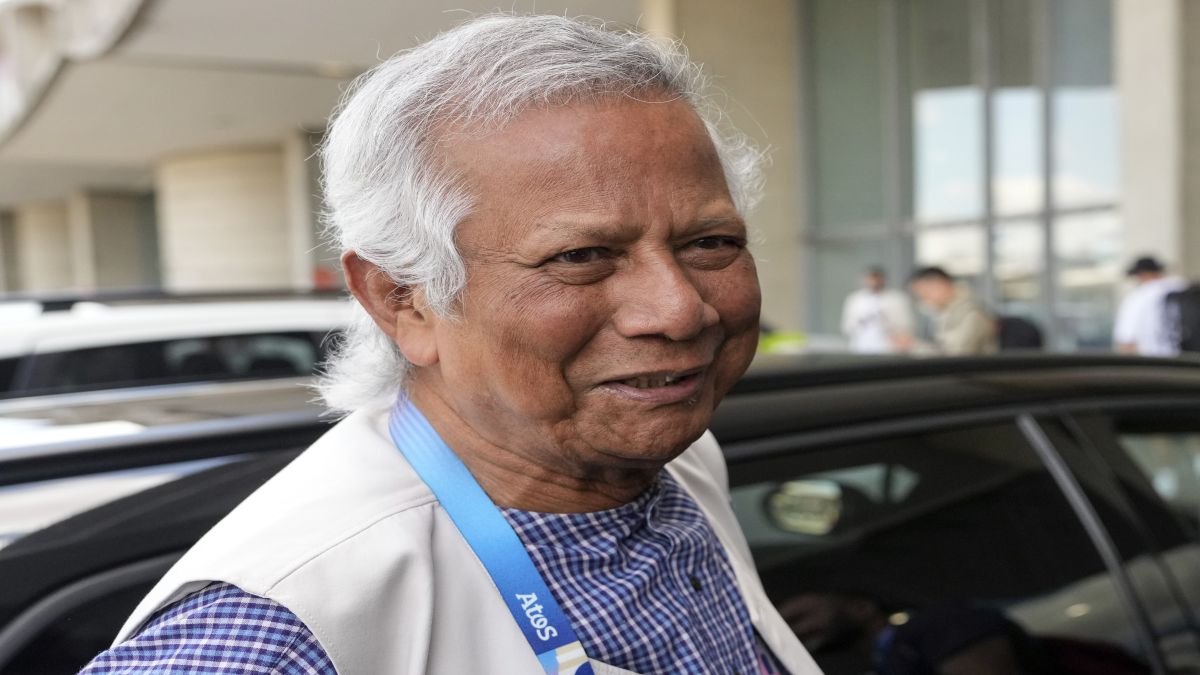India-Bangladesh ties are not going well and the latest example of the deterioration in the relationship came on Sunday (January 5), as the Muhammad Yunus-led interim government scrapped a planned training programme for 50 judges and judicial officers in India.
Bangladesh’s Ministry of Law, Justice, and Parliamentary Affairs issued an order to cancel the notification, which allowed the officers to attend a training programme in India.
What’s going on? Why were Bangladeshi judges to visit India? And why has it now been cancelled? We get you the answers.
Dhaka calls off training of judicial officers
On Sunday, the Daily Star reported that Muhammad Yunus ’ interim government in Dhaka on Sunday issued an order to cancel a notification from December 30, 2024, which permitted 50 judicial officers to attend a training programme in India.
“The notification has been cancelled,” a law ministry spokesman said without providing any further details. However, the report said that the move was in compliance with directives from the Supreme Court.
Dhaka officials in India
The training for the Bangladesh judicial officers was to take place in Madhya Pradesh’s Bhopal at the National Judicial Academy and the State Judicial Academy between February 10 and 20. The officials who were selected to go were chosen from a list of assistant judges, senior assistant judges, joint district and sessions judges, additional district and sessions judges, district and sessions judges and other serving officials.
Notably, this training was signed off by former Prime Minister Sheikh Hasina when she signed an MoU during her 2017 visit to New Delhi. Under this MoU, judicial training for the officials of Bangladesh judiciary was expected to be imparted in the National Judicial Academy in Bhopal as part of the building of capacity and expertise of the judiciary of Bangladesh.
Moreover, the MoU stated that the training module would be financed by the Government of India and that the Government of Bangladesh was not expected to shoulder any of the costs.
The cancellation of the training came a day after Bangladesh daily, Sangbad Sangstha, had publicised the planned visit.
India-Bangladesh ties nosedive
While the Bangladesh interim government says that the training being called off is in compliance with the Supreme Court, many believe that it’s another example of ties between the once-friendly neighbours souring.
The two nations have been witnessing a strain since Sheikh Hasina fled to New Delhi last August following a massive student-led protest that toppled her Awami League’s 16-year regime. Dhaka has been asking for Hasina’s extradition from India. However, New Delhi is yet to reveal what it plans to do regarding the request from Bangladesh.
The tensions between the two countries have also worsened over the rising number of attacks on Hindus in Bangladesh . According to news reports, there have been a series of attacks on Hindu community members and their places of worship.
The biggest flashpoint was when Dhaka arrested former Iskcon priest, Chinmoy Krishna Das . His arrest came after a local politician complained that he had disrespected the Bangladeshi flag by raising it lower than a saffron-colour flag.
The arrest also prompted India’s External Affairs Ministry to say that it was unfortunate that “a religious leader presenting legitimate demands through peaceful gatherings” was facing legal trouble while extremists behind attacks against minorities, including “desecration of deities and temples,” remained free.
Worsening ties between the two nations have also led to Dhaka cancelling a key deal with New Delhi, which would provide India’s Northeast with better internet. In December, Bangladesh’s internet regulator blocked a government plan to allow India to access internet bandwidth through its territory.
Announcing its decision, the internet regulator claimed that the plan, if implemented, would adversely impact the country’s prospects to become a regional internet hub.
Last August, the Bangladesh Nationalist Party (BNP) demanded the cancellation of agreements signed with India over the past 15 years under Sheikh Hasina’s government. A key BNP official had described the diplomatic agreements signed between the two countries as “secret” and “unjust”.
Muhammad Yunus, the Nobel laureate, has also acknowledged a strain in ties with India, telling the New York Times in November that India’s protection of Hasina and painting his government as overrun by extremists as factors aggravating relations.
However, despite the waning relations, Dhaka earlier this month said it would continue to advance on issues of mutual interest with India while work goes on for the extradition of Sheikh Hasina. Foreign affairs adviser Md Touhid Hossain was quoted as saying, “We have many issues of mutual interest on bilateral fronts. I think both will continue side by side. We will advance with all these issues.”
However, amid all this, one positive development is that the two sides released and repatriated 95 Indian fishermen incarcerated in Bangladesh and 90 Bangladeshi fishermen lodged in the jails of India on Sunday.
The release was carried out near the international maritime boundary line between India and Bangladesh. They also exchanged the fishing boats detained by the coast guards and the navies of the two countries.
With inputs from agencies


)

)
)
)
)
)
)
)
)



